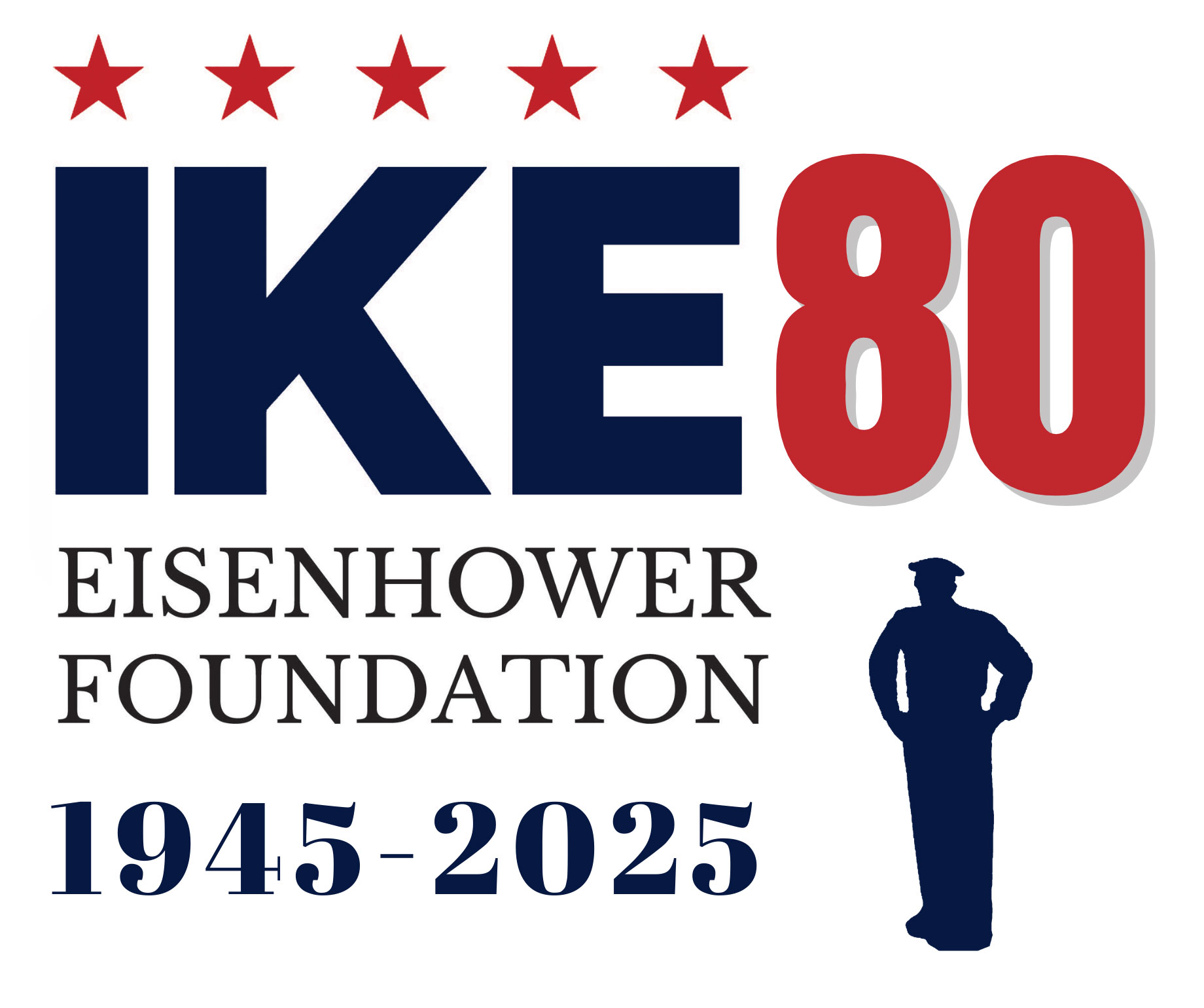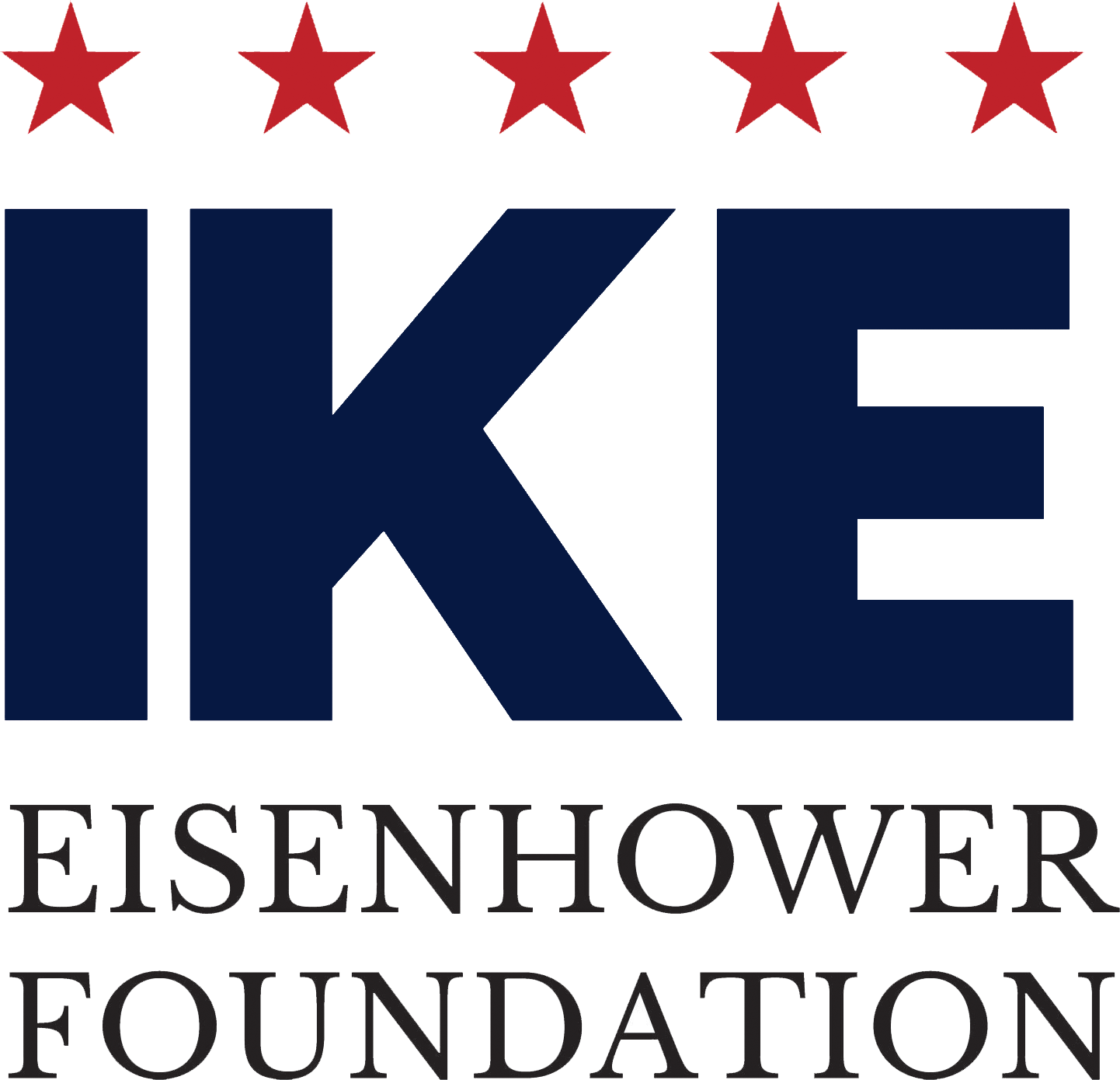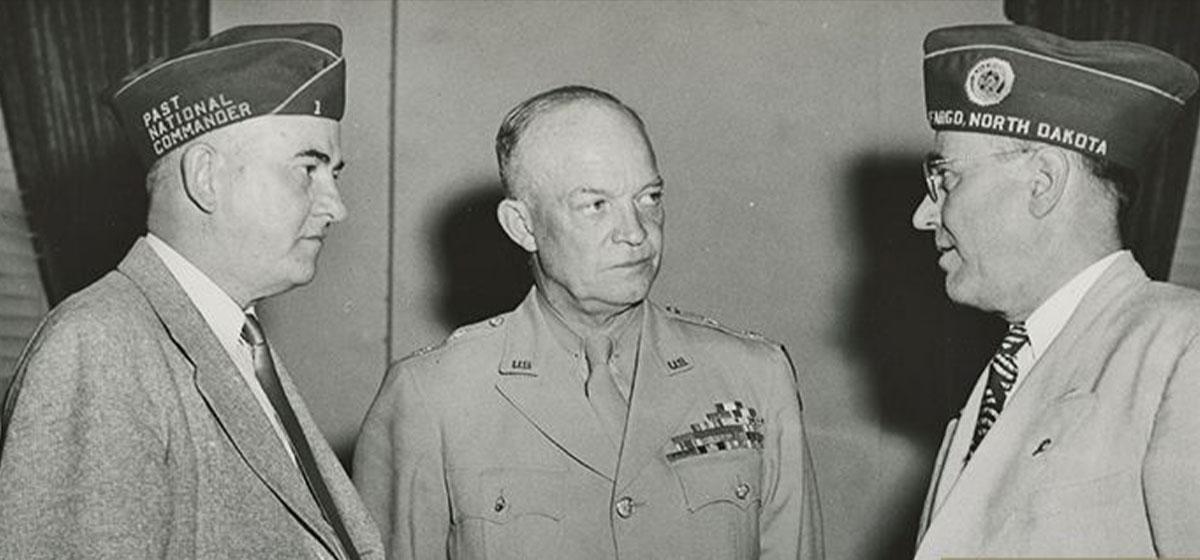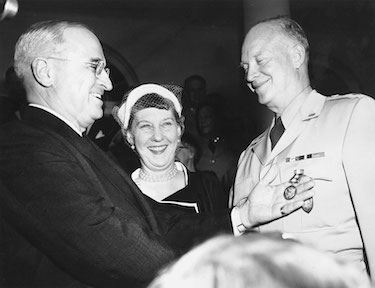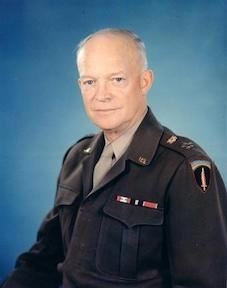
As he prepared to retire, Ike was physically and mentally tired. He and Mamie dreamed of buying a ranch near a small college town where he could teach and write, but it was not to be. When he was approached, for a second time, to accept the position of president of Columbia University, Ike thought about the idea long and hard before saying, “Yes.” But first he had to schedule some time to write his memoirs of the war.
It had not been easy to convince Ike to write Crusade in Europe. There had been countless opportunities presented to him after the war, and he had turned them all down. To have served his country had been a great honor, and he refused to exploit it for personal gain. Finally, the argument that he had a duty to future generations to leave behind an accurate accounting of his experiences during the war convinced him to undertake the project.
